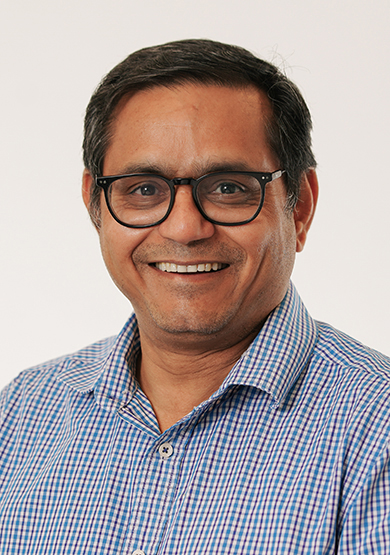Dr Devendra Hiwase: Impact of Frailty on Treatment and healthcare: improving quality of life for older MDS/AML patients

Older AML patients treated with chemotherapy have a five-year overall survival of <10%, experience treatment related toxicities and spend a substantial portion (40-50%) of their remaining life in hospitals. However fit older patients do benefit from intensive chemotherapy or other treatments. Age-related deficits need to be incorporated into clinical assessments to prevent over-treatment in frail and vulnerable patients and under-treatment of fit older patients. This trial seeks to incorporate geriatric assessment in treatment decision-making to provide patient-centred care and optimise healthcare resource utilisation.
Myelodysplastic syndromes (MDS) and acute myeloid leukaemia (AML) are common blood cancers in older patients (≥65 years) and its incidence is increasing in the context of our ageing population. Older AML patients treated with chemotherapy have a five-year overall survival of <10%, experience treatment related toxicities and spend a substantial portion (40-50%) of their remaining life in hospitals. However, select fit older MDS and AML patients do benefit from intensive chemotherapy, and others may benefit from novel targeted therapies such as BCL2, PD-1, IDH1/IDH2 and FLT3-inhibitors.
Accurate selection of patients based on disease markers and/or fitness is critical. However, routine clinical consultation, consisting of a history and physical examination, fails to detect age-related deficits in approximately half of older cancer patients and can lead to over-treatment of frail and vulnerable patients and under-treatment of fit older patients. The Society of Geriatric Oncology (SIOG) recommend geriatric assessment for older patients with cancer, but geriatric assessment is not part of routine clinical practice, possibly due to conceptions regarding its resource intensive nature and limited evidence in MDS and AML patients.
The overarching aim of this proposal is to incorporate geriatric assessment in treatment decision-making to provide patient-centred care and optimise healthcare resource utilisation.
This study will provide critical evidence on 1) the prognostic value of geriatric assessment in treatment decision making for older MDS and AML patients, 2) the type and number of interventions required for management of non-leukaemic comorbidities and the impact of these on patient outcome, and 3) the impact of chemotherapy and other disease modifying therapies on physical, cognitive and psychosocial function, including quality of life (QOL) in older MDS and AML patients with and without deficits in geriatric assessment -domains.
Results from this study will be utilised to develop a consumer-focused treatment decision model, by integrating geriatric assessment and disease-related factors to identify frail (impaired physical and cognition) older MDS/AML patients, as they are frequently omitted from clinical trials despite being some of the largest consumers of healthcare resources. This multidisciplinary team of nurses, geriatricians with expertise in geriatric oncology, and haematologists will provide missing evidence for developing a patient-centred treatment decision algorithm for older patients with MDS/AML.
Last updated on January 30th, 2023
Developed by the Leukaemia Foundation in consultation with people living with a blood cancer, Leukaemia Foundation support staff, haematology nursing staff and/or Australian clinical haematologists. This content is provided for information purposes only and we urge you to always seek advice from a registered health care professional for diagnosis, treatment and answers to your medical questions, including the suitability of a particular therapy, service, product or treatment in your circumstances. The Leukaemia Foundation shall not bear any liability for any person relying on the materials contained on this website.